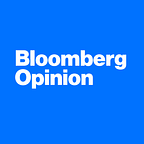Welcome to Your Bland New World
Why do disruptive startups slavishly follow an identikit formula of business model, look and feel, and tone of voice? Because it works, sort of.
By Ben Schott
A week or so ago Colgate unveiled Hum — a smart toothbrush that “guides consumers to brush better and to build healthier habits without sacrificing fun for functionality.” Hum doesn’t look or feel like Colgate’s other toothbrushes … but it does rather resemble Quip.
Quip is equally flattered by Goby, Burst, Boka, Brüush, Gleem and Shyn.
For those not tracking the intricacies of zeitgeist marketing, Hum vs Quip is just the latest corporate skirmish in a wider consumer war: brand vs bland.
What are blands?
All startups seek to disrupt and disintermediate a smug status quo, or originate and dominate an entirely new niche. But what makes a brand a bland is duality: claiming simultaneously to be unique in product, groundbreaking in purpose, and singular in delivery, while slavishly obeying an identikit formula of business model, look and feel, and tone of voice.
Despite hiding in plain sight (and plain recycled packaging), this “slight of bland” has won the wallets of a generation…
